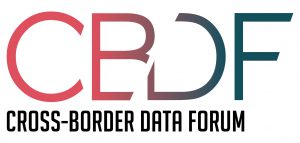Prof. Peter Swire’s Lawfare Blog article “Foreign Intelligence and Other Issues in the Initial Opinion in Schrems II,” reviews the Dec. 19 initial opinion from Advocate General Henrik Saugmandsgaard Øe. In his article, Swire provides background on the Schrems litigation and a brief summary of the “holdings” of the Advocate General’s opinion. While the Advocate General’s opinion is not a binding decision of law; it is generally considered an important prediction of the full Court of Justice of the European Union’s (CJEU’s) decision, which is expected in the first quarter of 2020.
Swire highlights four key aspects of the opinion. First, Swire notes that the Advocate General’s review found “nothing to affect the validity” of the European Commission’s approval of standard contractual clauses in 2010. This implies that the clauses, used for approximately 90 percent of data transfers out of Europe, should remain in effect despite concerns that the CJEU might strike down this well-used data transfer regime. The opinion would also allow case-by-case challenges to transfer under the clauses.
In contrast, the fate of the Privacy Shield is less clear. While the opinion questions the legality of the Privacy Shield agreement based on concerns about the lawfulness of U.S. foreign intelligence surveillance activities, the Advocate General recommends that the Court avoid the issue based on the procedural posture of the case.
Notably, the opinion also appears to close the gap between the relatively ideologically pure CJEU and the relatively pragmatic European Court of Human Rights (ECtHR), described previously by Theodore Christakis. The opinion favorably cites the recent Big Brother Watch and Centrum För Rättvisa opinions of the ECtHR that found bulk collection surveillance regimes lawful “provided they are accompanied by a number of minimum guarantees.”
In addition, the opinion also appears to revise previous thinking regarding programs like the Section 702 Upstream program, stating that “temporary access by the intelligence authorities to the content of the electronic communications for the sole purpose of filtering…cannot be treated as equivalent to generalized access to that content” (emphasis in original).
Swire concludes by noting that the opinion offers heartening news for continued global data flows, suggested that the system of standard contractual clauses will continue to be a lawful basis for transfer, recommends leaving the Privacy Shield in place, and offers new jurisprudential support for foreign intelligence surveillance with safeguards. At the same time, under the proposed approach, specific transfers under the clauses will be subject to challenge before EU privacy regulators.
As mentioned earlier, the full CJEU opinion in the Schrems II case is expected in the first quarter of 2020.
To read the full article, please click here.
These statements are attributable only to the author, and their publication here does not necessarily reflect the view of the Cross-Border Data Forum or any participating individuals or organizations.

